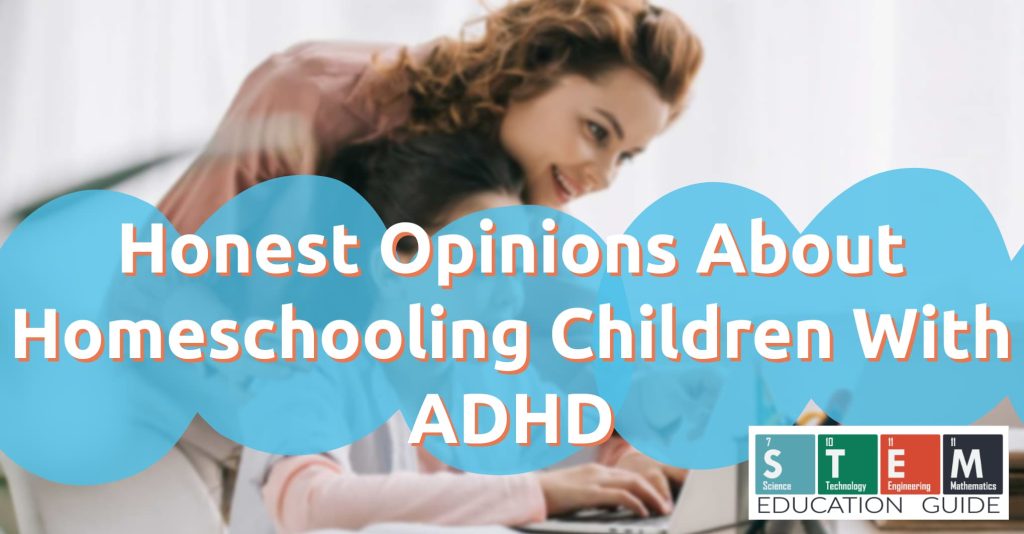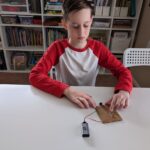Parents with neurodivergent kids often struggle to decide whether or not to try homeschooling.
Unfortunately, many public schools in the U.S. are not designed to teach kids with ADHD, which results in bullying, poor mental health, and falling behind.
On the other hand, homeschooling can be isolating. So how do parents choose between homeschooling and traditional school? One parent asked for advice from fellow ADHD-ers and parents of kids with ADHD on the pros and cons of sending their kid to a conventional school.
Table of Contents
1. Schools Are Not Equipped to Teach Kids with ADHD
Many users on the forum agree that most schools are not set up to teach kids with ADHD, like one special education support worker that assists kids with ADHD and autism in the classroom.
“I can tell you with certainty that the school system is not equipped to give these children the support, education, and socialization they need,” they share. “My heart breaks for these kids daily as I struggle to advocate for their needs and educate other teachers.”
2. Bullying Is a Big Problem in Schools
Some parents reminisce about their days in school and, looking back, are horrified by how much kids who were seen as different were bullied. “I remember the kids like him at school and how peers treated them. It breaks my heart to think of it happening to my son,” says one concerned parent.
3. When Kids Need Extra Help, They’re Left Behind in Schools
Someone who was homeschooled from fifth grade through their senior year of the high school shared that homeschooling helped them grow.
“When I was in a traditional school, I was either very good at a subject or terrible at it,” they write, saying they were often left behind in classes they didn’t enjoy.
“Homeschooling solves that issue because I could go at the right pace for me,” they share.
4. Homeschooling Helps Kids With ADHD Go At Their Own Pace
Traditional schools are very structured, requiring kids to transition from subject to subject at the school’s pace rather than the child’s.
“My parents started homeschooling me in the 6th grade,” one commenter says. “I was finally able to work at my own pace.” She explained that her undiagnosed ADHD made teachers in traditional schools see her as “lazy and too busy daydreaming.”
5. Schools Punish Kids Instead of Helping Them
One disgruntled parent shared his experience sending his ADHD son to first grade, and the school treated him poorly. The teacher was a bully, and the school ‘disciplined’ their child by making him sit alone at lunch and taking away recess.
They punished him constantly for things beyond his control. Finally, he admits that the damage those two school years caused him is still something he struggles with at age fourteen.
6. Homeschooling Isn’t Just School at Home
If you’re looking to homeschool your kid, it can benefit them if you do things differently than in a traditional school setting. Remember that homeschooling is not “school at home.” So please don’t force them to conform to some idea of how the school should be.
That means letting your kid play with LEGOs during storytime, giving them ample breaks throughout the day, and shifting gears when they do not understand the lesson.
7. Some Neurodivergent Kids Love Going to School
While many kids with ADHD enjoy homeschooling more than in traditional schools, that isn’t the case for every child.
For example, one parent confesses, “My son has ASD and ADHD. He’s also gifted. We homeschooled during the pandemic, and he hated it,” says one parent. “It took time to get the school to accommodate him, but we kept pushing until they did.”
It can be more challenging for homeschooled kids to make friends and practice social skills because they’re more isolated than their peers in traditional schools, who interact with other kids and teachers all day.
8. ADHD Kids Benefit From Intertest-Based Learning
“I benefitted greatly during the year I was homeschooled,” shares one ADHD-er. They continued that their parents made some of it interest-based learning, and they had some say in what activities they wanted to do.
9. Homeschooling Offers More Schedule Flexibility
People with ADHD often struggle to focus, which means the hour blocks of scheduled lessons in schools can be challenging for them.
While homeschooled, one says they could take more frequent breaks during the day and also had time to transition between activities, “Something that I found challenging in school because the time between activities was shorter.”
10. Homeschooling Prioritizes the Kiddo’s Needs
If you, as a parent, opt into homeschooling for your kid, you have way more control over the curriculum and structure of your kids’ schooling than you would if they went to a traditional school.
“Kids learn better, in my opinion, when they’re allowed to feel safe and accepted in their environment,” writes one homeschooling parent.
Trying to control all those “behaviors” and masking adds to burnout at school. We don’t have to rush kids like they do in traditional schools because all these things don’t necessarily have to be taught by March to fulfill state curriculum requirements.
This thread inspired this post.
This article was originally published on thread.








